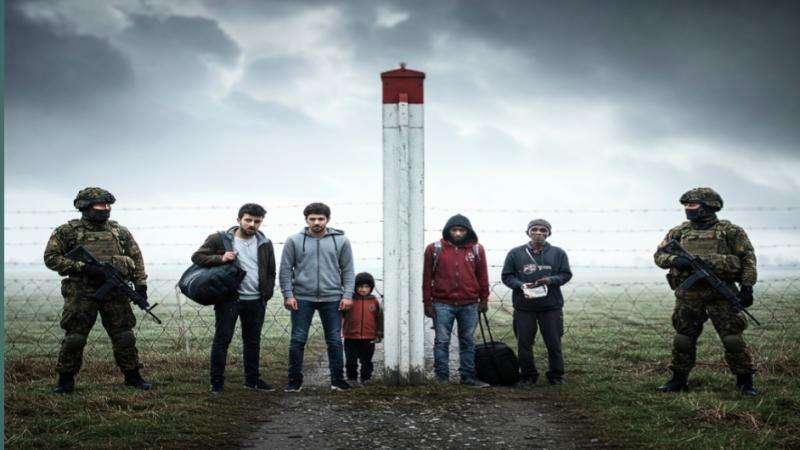Germany's new government, under Interior Minister Alexander Dobrindt, is implementing a stricter asylum policy that could significantly impact South Asian asylum seekers, including those from India, Pakistan, and Bangladesh. The policy aims to reduce irregular migration by increasing border controls and rejecting asylum seekers at the border, a move that has drawn criticism for potentially violating EU law, Daily Dazzling Dawn understand.
Key Policy Changes:
Border Rejections: German border guards are now authorized to turn back individuals seeking asylum at the border. While exceptions are to be made for vulnerable groups like pregnant women and children, this marks a significant shift from previous policies.
Increased Border Controls: The government is deploying more police at the borders and increasing surveillance to prevent undocumented migrants from entering the country.
Stricter Asylum Procedures: The new policies aim to expedite asylum application processing, potentially leading to faster rejections.
Reduced Social Benefits: There are concerns that social benefits for non-residents may be restricted, impacting asylum seekers' access to essential services.
Impact on South Asian Asylum Seekers:
These changes raise concerns for South Asian individuals seeking refuge in Germany.
Increased Risk of Rejection: Asylum seekers from India, Pakistan, and Bangladesh may face a higher risk of being turned away at the border or having their applications rejected.
Legal Challenges: The policy's potential violation of EU law could lead to legal challenges, creating uncertainty for asylum seekers.
Limited Access to Support: Restrictions on social benefits could leave South Asian asylum seekers with inadequate support while their cases are being processed.
Exploitation by Smugglers: Stricter border controls may force some to rely on dangerous smuggling networks, increasing their vulnerability.
Germany has historically been a major destination for asylum seekers, including those from South Asia. However, anti-immigrant sentiment has been rising, leading to a shift towards more restrictive policies. While proponents argue these measures are necessary to control irregular migration, critics fear they will harm vulnerable individuals and undermine Germany's commitment to human rights.








.svg)

.jpg)
.jpg)